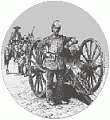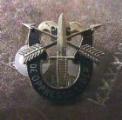Afghan and NATO officials have increasingly focused on protecting the local population as the linchpin of defeating the Taliban and other insurgent groups. Certain steps are important to achieving this objective, such as building competent Afghan national security forces, reintegrating insurgents, countering corruption, and improving governance. This document focuses on a complementary step: leveraging local communities, especially the use of
traditional policing institutions, such as
arbakai, chagha, and chalweshtai, to establish security and help mobilize rural Afghans against the Taliban and other insurgents.
Effectively leveraging local communities should significantly improve counterinsurgency prospects. Gaining the support of the population—especially mobilizing locals to fight insurgents, providing information on their locations and movements, and denying insurgent sanctuary in their areas—is the sine qua non of victory in counterinsurgency warfare. By tapping into tribes and other communities where grassroots resistance already exists, local defense forces can help mobilize communities simultaneously across multiple areas. The goal should be to help cause a “cascade” or “tip,” in which momentum against the Taliban becomes unstoppable. In 2010, a growing number of communities in Kandahar, Helmand, Paktia, Herat, Paktika, Day Kundi, and other provinces mobilized and fought against insurgents. These cases present significant opportunities for counterinsurgency efforts in Afghanistan.
Successful efforts to protect the population need to include better understanding of local communities. Indeed, the Afghan and NATO governments often present the struggle as being between the Taliban and the central government in Kabul. But this dichotomy is false and is not likely to persuade rural villagers, who have never relied wholly on state institutions for law and order. Rural communities tend to be motivated by self-interest and self-sufficiency, preferring to secure their own villages rather than have outsiders do it for them. A failure to adopt an effective bottom-up effort will likely cripple counterinsurgency efforts. This analysis documents three lessons about the viability of establishing bottom-up security in Afghanistan.











Bookmarks